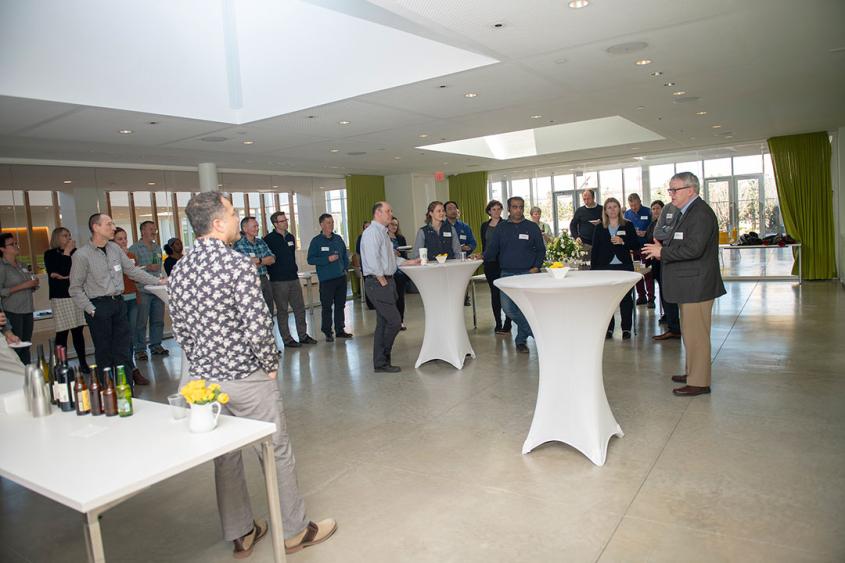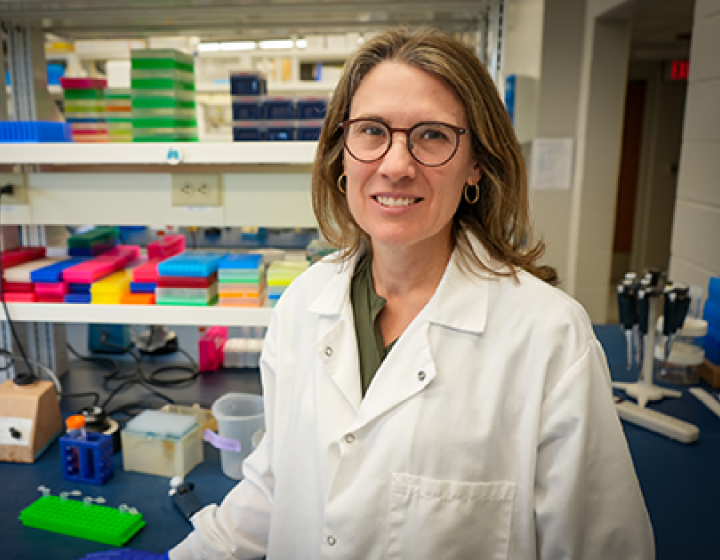College launches new program to support early-career faculty and boost diversity
A new Cornell program helps early-career faculty navigate the constellation of challenges they face by cultivating key professional skills.
The Program for Achieving Career Excellence (PACE) will offer targeted professionalization opportunities and work to increase diversity in departments that conduct research in the fields of human allergy and infectious disease. Directors celebrated the launch of the program with an event March 27 at the College of Veterinary Medicine.
“Early-career faculty are an underserved population,” said Cynthia Leifer, Ph.D. ’00, associate professor of immunology. “Cornell has successfully implemented similar programs to increase the diversity of students and representation of women, and now PACE will meet the needs of early academic professionals, especially URM faculty.”

Leifer co-directs PACE with associate professor Dr. Hector Aguilar-Carreno. The program’s advisory board, participants and faculty mentors come from colleges across Cornell, including the College of Veterinary Medicine, the College of Agriculture and Life Sciences and the College of Engineering.
To be eligible, applicants must be within the first eight years of their initial faculty appointment and have research interests that align with the NIH-National Institute of Allergy and Infectious Diseases, which funds the program. PACE accepted its first round of 42 participants this semester, who will attend a grant writing course and professional development workshops, enjoy an individualized mentoring plan, and have access to a visiting scholar grant.

Leifer and Aguilar-Carreno developed the program’s components by identifying crucial areas in the professional path of early-career faculty where individuals need the most support.
“All the aspects of our program have to do with our overarching goal of bringing early-career faculty to success,” said Aguilar-Carreno.
A key arm of PACE focuses on increasing faculty diversity in the sciences — the Rising Star Program — bringing postdoctoral researchers from underrepresented minority (URM) groups to Cornell with the aim of recruiting them to eventual faculty positions. “This program will have ripple effects far beyond its initial objectives,” said Lorin D. Warnick, D.V.M., Ph.D. ’94, the Austin O. Hooey Dean of Veterinary Medicine. Warnick noted that PACE is one way the college is working toward the diversity and inclusion goals outlined in its 2018-2022 Strategic Plan.

Currently, over 30 percent of American citizens identify as URMs, and that number is expected to rise to 40 percent by the year 2050. A 2018 study in Plos ONE found that, of students earning a bachelor’s degree in biological sciences, 60 percent are white while 18 percent are URM. Consequently, academic science departments may struggle to reflect a representative number of URMs in their faculty ranks.
“Overall, PACE will directly increase diversity of the biomedical research workforce at Cornell,” said Leifer, “in addition to creating a group of successful URM faculty who can inspire and train the next generation of increasingly diverse undergraduate and graduate students.”
By Melanie Greaver Cordova






